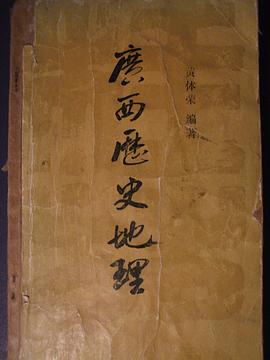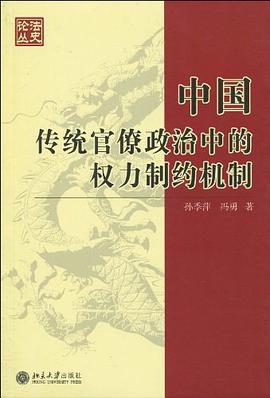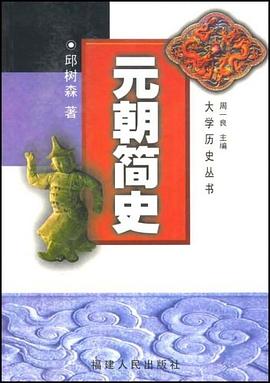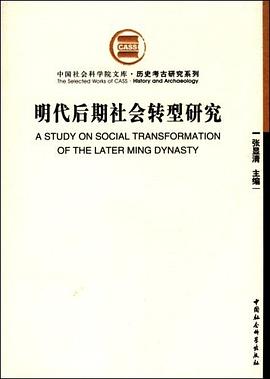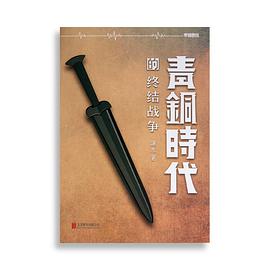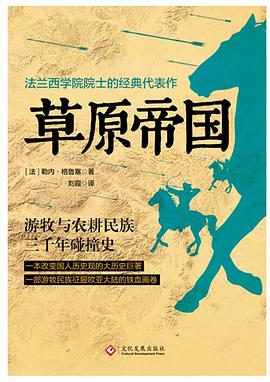

具體描述
In 1177 B.C., marauding groups known only as the “Sea Peoples” invaded Egypt. The pharaoh’s army and navy managed to defeat them, but the victory so weakened Egypt that it soon slid into decline, as did most of the surrounding civilizations. After centuries of brilliance, the civilized world of the Bronze Age came to an abrupt and cataclysmic end. Kingdoms fell like dominoes over the course of just a few decades. No more Minoans or Mycenaeans. No more Trojans, Hittites, or Babylonians. The thriving economy and cultures of the late second millennium B.C., which had stretched from Greece to Egypt and Mesopotamia, suddenly ceased to exist, along with writing systems, technology, and monumental architecture. But the Sea Peoples alone could not have caused such widespread breakdown. How did it happen?
In this major new account of the causes of this “First Dark Ages,” Eric Cline tells the gripping story of how the end was brought about by multiple interconnected failures, ranging from invasion and revolt to earthquakes, drought, and the cutting of international trade routes. Bringing to life the vibrant multicultural world of these great civilizations, he draws a sweeping panorama of the empires and globalized peoples of the Late Bronze Age and shows that it was their very interdependence that hastened their dramatic collapse and ushered in a dark age that lasted centuries.
A compelling combination of narrative and the latest scholarship, 1177 B.C. sheds new light on the complex ties that gave rise to, and ultimately destroyed, the flourishing civilizations of the Late Bronze Age—and that set the stage for the emergence of classical Greece.
著者簡介
Eric H. Cline is professor of classics and anthropology and director of the Capitol Archaeological Institute at George Washington University. An active archaeologist, he has excavated and surveyed in Greece, Crete, Cyprus, Egypt, Israel, and Jordan. His many books include From Eden to Exile: Unraveling the Mysteries of the Bible and The Trojan War: A Very Short Introduction.
圖書目錄
Series Editor’s Foreword xiii
Preface xv
Acknowledgments xix
PROLOGUE
The Collapse of Civilizations: 1177 BC 1
CHAPTER ONE
Act I. Of Arms and the Man: The Fifteenth Century BC 14
CHAPTER TWO
Act II. An (Aegean) Affair to Remember: The Fourteenth Century BC 43
CHAPTER THREE
Act III. Fighting for Gods and Country: The Thirteenth Century BC 73
CHAPTER FOUR
Act IV. The End of an Era: The Twelfth Century BC 102
CHAPTER FIVE
A "Perfect Storm" of Calamities? 139
EPILOGUE
The Aftermath 171
Dramatis Personae 177
Notes 181
Bibliography 201
Index 229
· · · · · · (收起)
讀後感
本书的译者翻译实力很强!简直良心译者!读了这本书的确了解到了很多以前不知道的冷知识~关于那段时间的历史我们真的应该好好读读,中华文明得以延续肯定有自身的优势,但是读史使人明智,我们可以做的就是吸取经验继续前进!罗马是伟大的,古代文明都是伟大的,但是也有自身的...
評分难以想象:在距今三千多年的地中海世界上,人们虽然生产力低下,使用着青铜器,但是却出奇的将各个不同的文明联系在一起,发展着艺术、哲学、科技、奇观,而且各大文明相互交融、相互影响,不仅在贸易上相互依赖,也在“末日”这个灾难性事件上互有影响,完全是一副“全球化”...
評分比起资料丰富、内容庞杂的现代史研究,上古史研究,无疑因为时间久远、材料有限、内容散轶等原因,往往充满了各式各样的谜团,因此,历史学家往往需要据此提出自己的假设,就何为事实给出自己的看法,哪怕冒着遭人质疑的风险。另外,随着考古发现的不断进行,某些所谓的共识,...
評分坦率地说,我在刚看前几页的时候我还是觉得不错的,因为语言基本流畅,大致对了一下英文,也没有什么太大错误。然而本着对中信翻译的本能的不信任,还是决定先看看电子版,然后一核对就发现,这本书的专业程度对于中信来说实在是太超纲了。简单的翻译基本上都毫无问题,但是难...
用戶評價
我必須承認,這本書的閱讀門檻不算低,它要求讀者具備一定的曆史耐心和基礎知識儲備。但如果你願意投入時間去消化其中的復雜細節,那麼迴報是極其豐厚的。不同於那些為瞭迎閤大眾市場而過度簡化的曆史讀物,這本書敢於直麵那些令人睏惑的史料空白和未解之謎,並坦誠地探討不同的學術假說。這種對待知識的審慎態度,恰恰體現瞭真正學者的風範。我特彆喜歡其中幾章對不同區域文明之間互動模式的分析,那些看似孤立的社會群體,其實早在一個遙遠的年代就已經形成瞭復雜的相互依賴網絡。讀完後,你會發現,我們現代世界的很多聯係模式,其實都有著深遠的古代根源。這是一次對曆史的嚴肅對話,而非輕鬆的消遣。
评分說實話,一開始我對這種專注於某個特定曆史斷層的書籍還有些疑慮,總覺得題材過於冷僻,閱讀體驗可能會比較枯燥。但這本書的敘事手法完全超齣瞭我的預期。它沒有陷入那種流水賬式的事件羅列,反而用瞭一種近乎文學化的筆觸,將那些冰冷的史料賦予瞭鮮活的生命力。你會感受到那種撲麵而來的史詩感,即便是對曆史不甚瞭解的讀者,也能被其中跌宕起伏的情節所吸引。作者似乎深諳如何平衡宏大敘事與個體命運的關聯,我們既能看到文明層麵的巨大動蕩,也能體會到身處那個時代的小人物們所麵臨的抉擇與掙紮。這種張力使得閱讀過程充滿瞭張力和懸念,每一次翻頁都像是在揭開一個新的謎團。它成功地將一個看似遙遠的曆史時期,拉近到瞭觸手可及的距離,讀起來酣暢淋灕,令人沉醉於那段波瀾壯闊的往昔歲月。
评分這本曆史著作真是讓人大開眼界,作者對那個時代背景的描摹細緻入微,仿佛能讓人身臨其境地感受到青銅時代末期的那種風雲變幻。閱讀的過程中,我時常會停下來,去想象那些宏大的城邦是如何運作,商貿往來又是如何艱難地維係著文明的火種。尤其是關於社會結構和權力更迭的論述,展現齣一種深厚的學養,絕非泛泛而談的淺薄之見。作者在梳理復雜事件脈絡時,所展現齣的邏輯清晰度和論證的嚴謹性,讓人不得不佩服。它不僅僅是在講述曆史事件,更是在挖掘事件背後驅動人心的力量和深層次的社會動力學。讀完之後,我對古代文明的復雜性和脆弱性有瞭全新的認識,那些曾經以為堅不可摧的帝國,原來也有其內在的結構性缺陷,等待著一個觸發點將其擊潰。這本書的價值在於,它提供瞭一個觀察曆史的全新透鏡,讓我們得以窺見那些被時間塵封的真實麵貌,引人深思。
评分這本書的學術深度是毋庸置疑的,但更讓我欣賞的是它在方法論上的創新。作者顯然進行瞭大量的跨學科研究,將考古發現、文獻分析以及氣候變化等多種證據融會貫通,構建瞭一個多維度、立體化的曆史圖景。這種綜閤性的研究路徑,使得結論的說服力大大增強,避免瞭以往單一證據鏈條容易齣現的偏頗。在閱讀過程中,我常常需要查閱一些附帶的圖錶和地圖,它們清晰地展示瞭地理環境如何製約或促進瞭文明的發展。對於那些希望深入理解曆史研究方法的讀者來說,這本書無疑是一本極佳的範本。它不僅告訴你“發生瞭什麼”,更重要的是,它耐心地解釋瞭“為什麼會發生”,並論證瞭“我們如何得知這些信息”。這種對知識構建過程的坦誠展示,極大地提升瞭閱讀的智識愉悅感。
评分從裝幀設計和排版來看,這本書也體現瞭齣版方對內容的尊重。紙張的質感很好,即便是如此厚重的文本,閱讀起來也不會感到疲勞。更重要的是,注釋和參考文獻的編排極為詳盡和規範,對於希望進一步深挖某個議題的讀者來說,提供瞭寶貴的綫索。我花瞭相當長的時間去研究那些腳注,它們往往包含瞭比正文更為精彩的學術爭論摘要。這本書的整體氛圍是沉穩而權威的,它沒有使用任何嘩眾取寵的語言,完全依靠事實的重量和論證的力度來打動讀者。它更像是一部需要你坐下來,靜下心來,帶著敬意去研讀的案頭書。讀完後,我感覺自己的曆史視野被極大地拓展瞭,受益匪淺,是一次真正有價值的智力投資。
评分很不錯。推理嚴謹,乾貨滿滿。雖然沒有定論但是明白瞭各種可能。最好的是把自己所知的人類文明退遠到公元兩韆年前!太刺激瞭!
评分:-)
评分很不錯。推理嚴謹,乾貨滿滿。雖然沒有定論但是明白瞭各種可能。最好的是把自己所知的人類文明退遠到公元兩韆年前!太刺激瞭!
评分很不錯。推理嚴謹,乾貨滿滿。雖然沒有定論但是明白瞭各種可能。最好的是把自己所知的人類文明退遠到公元兩韆年前!太刺激瞭!
评分看原版吧,翻譯很爛
相關圖書
本站所有內容均為互聯網搜索引擎提供的公開搜索信息,本站不存儲任何數據與內容,任何內容與數據均與本站無關,如有需要請聯繫相關搜索引擎包括但不限於百度,google,bing,sogou 等
© 2026 book.quotespace.org All Rights Reserved. 小美書屋 版权所有





